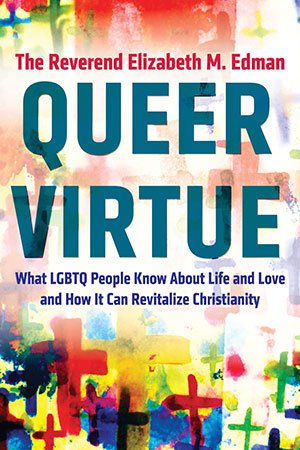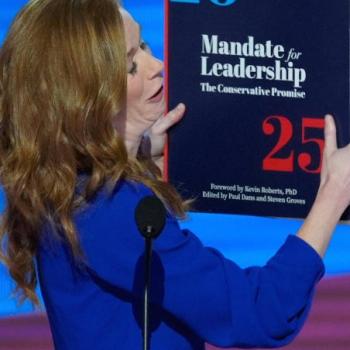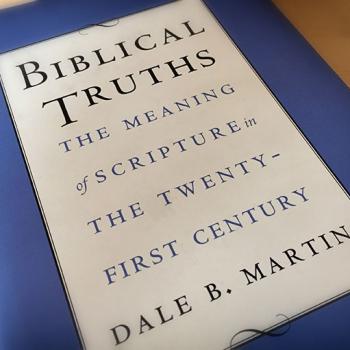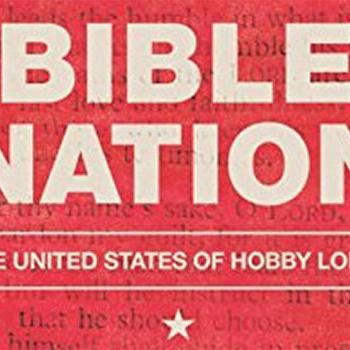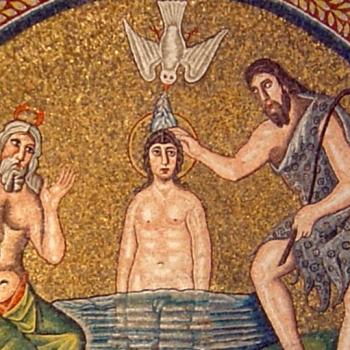Elizabeth Edman is a queer priest. She is also a priestly queer. It is from the perspective of these intertwined and inseparable identities that her new book (on sale tomorrow), Queer Virtue (Beacon Press, $25.95), challenges Christians to embrace queerness and to boldly proclaim a faith that “is and must be queer” (3).
Of course Edman doesn’t mean that straight Christians should turn gay. Queerness extends far beyond sexuality, it is “an impulse to disrupt any and all efforts to reduce into simplistic dualisms our experience of life, of God” (3). Queerness stands at direct odds with binary distinctions, legalism, and fundamentalism. It is an affront to the side of Christianity that dominates so much of the current public discourse about matters of faith and ethics.
Edman has had enough of the violence done in the name of Christianity—not just the physical, but also the spiritual, emotional, and psychological violence—and in Queer Virtue calls upon the progressive church to take back the ground they have ceded to the voices on the right and to embrace the “other,” to rupture the status quo, and to realize a new vision of personal and corporate religious life. It is her hope that lessons gleaned from queer experience “will provide trajectories for Christian inquiry that could bring new energy and urgency to the progressive church and its proclamation of the gospel” (13).
In Queer Virtue, Edman explores the essential teachings of Christian traditions in the light of queer experience, and then draws upon the virtues of queer identity to lay out a path for revitalizing Christian practice. Issues like identity, community, pride, risk, family, authenticity, hospitality, love, and intimacy are crucial to the future of Christianity, and the queer perspective speaks to each of them. By drawing attention to the shared ethical foundations of the Christian and queer communities, Edman encourages us to renew a conscious commitment to love and grace:
“The moment is upon us for the church to step boldly into this place of radical vulnerability—discerning and claiming our identity, risking, touching, facing down scandal, adopting and being adopted by one another—and in doing so, open pathways for people the world over who are clamoring to enter the sacred.” (167)
Though Queer Virtue is a potent blend of theology, sociology, and ecclesiology, Edman’s vision for the future of the church isn’t merely an idealized abstraction, it is a concrete reality being lived-out right now. Through personal and often heartbreaking anecdotes, Edman gives witness to the truth of her thesis: LGBTQ people are vital to the future of the church and continuing to ignore and marginalize their queer virtues represents a loss to us all.
For a straight guy like me whose life experience has been anything but queer, Edman’s call for Christians to embrace queerness is both challenging and refreshing. Though some sections of her book will be particularly meaningful to LGBTQ people (especially her chapter “Coming Out”), the entire volume has a great deal to offer any person, LGBTQ or otherwise, who is concerned about the future of Christianity as a meaningful force in our society. All Christians could use a bit more queerness in their life, and Queer Virtue is a beautiful introduction towards realizing the hope of a more queer Christianity.
Find out more about Liz Edman and Queer Virtue at queervirtue.com.
 Dan Wilkinson
Dan Wilkinson
Dan is the Executive Editor of the Unfundamentalist Christians blog. He is a writer, graphic designer and IT specialist. He lives in Montana, is married and has two cats.

